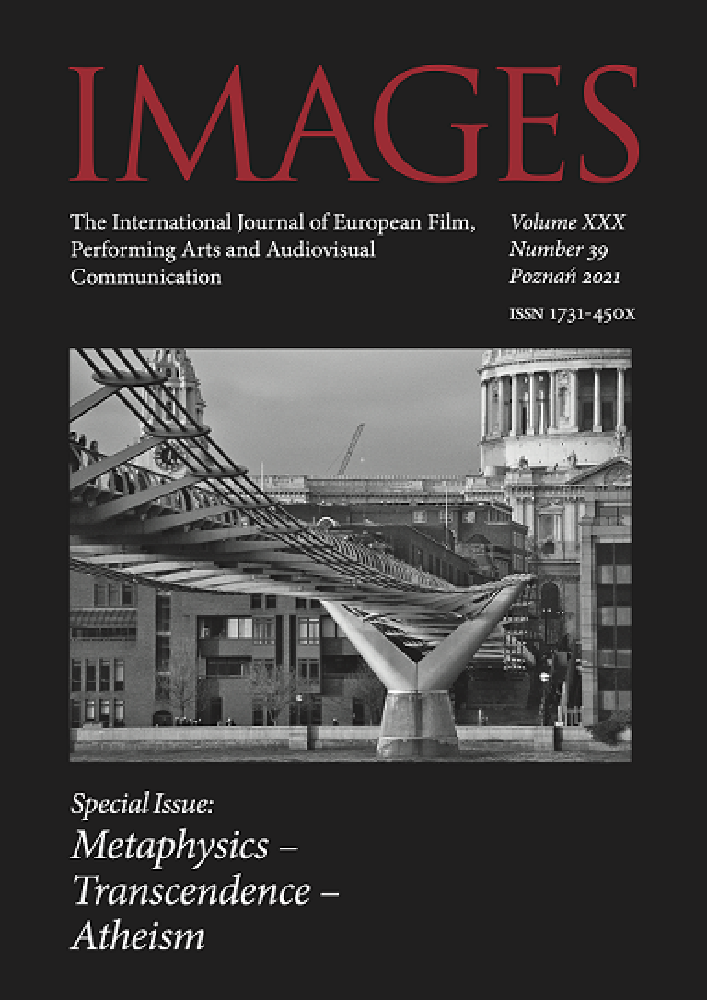Abstract
The article focuses on the reading of Waldemar Frąc’s film theory in the context of the newest film examples. In the first part, the author presents the most important features of the “possible cinema” and expands it with a philosophical possible worlds theory, and also gives the context of mind-game films. In the second part, the author proposes an interpretation of two films: Annihilation and Arrival, and the Dark series in the face of the presented theoretical solutions. The main point of the analysis is to show how the worlds presented in the given films exist, how the concept of possibility/the possible world is manifested, and what changes occur at the level of the film narrative itself. Interpretation of the film examples leads the author to the conclusion that metaphysical possibilism in the film and series reveals not only ontological themes, but also has significant intercultural value and moves existential reflection.
References
Elsaesser T., Kino – maszyna myślenia, przeł. M. Przylipiak i in., Gdańsk 2018
Elsaesser T., European Cinema and Continental Philosophy, New York 2019
Frampton D., Filmosophy, New York 2006
Frąc W., Kino możliwe, Kraków 2003
Haack S., Philosophy of Logics, Cambridge 1978
Leibniz G.W., Monadologia, przeł. H. Elzenberg, Toruń 1991
Metafizyka w filozofii analitycznej, red. T. Szubka, Lublin 1995
New Takes in Film-Philosophy, red. H. Carel, G. Tuck, New York 2011
Nowak L., Byt i myśl, t. 1, Poznań 1998
Pepliński M., Myślenie kina. Nowa filozofia filmu, „Ekrany” 2017, nr 5 (39)
Priest G., An Introduction to Non-Classical Logic, Cambridge 2008.
Quine W.V.O. Z punktu widzenia logiki: Eseje logiczno-filozoficzne, przeł. B. Stanosz, Warszawa 1969
Wittgenstein L., Tractatus logico-philosophicus, przeł. B. Wolniewicz, Warszawa 1997
Żegleń U., Modalność w logice i w filozofii, Warszawa 1990
License
Copyright (c) 2021 Jan Biedny

This work is licensed under a Creative Commons Attribution 4.0 International License.

